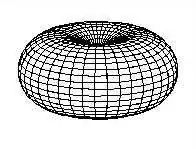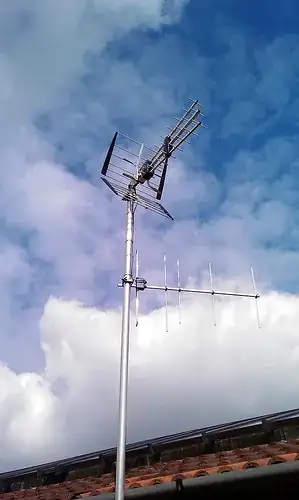An antenna, by itself, can't magically create gain. The gain is mainly dependent on the shape of the antenna, and the surface area (how big it is).
Consider the difference between two antennas: an ordinary omnidirectional one (broadcasts and receives in a nearly perfect sphere), and a highly directional one, such as a Yagi.
Omnidirectional:

Yagi:

The omnidirectional antenna will receive a relatively constant gain no matter where the signal is originating from, unless it's directly above the antenna (hence why the omni's radiation graph is donut-shaped).
The Yagi antenna will receive approximately zero gain from most directions, but from the direction in which you point it, in a fairly narrow cone, it will receive an incredibly high gain -- much higher than the gain the omnidirectional antenna can receive from any given direction.
Since visible light observes similar properties to other EM radiation, consider the analogy of a light bulb vs. a flashlight. If you hang a lightbulb from a rope in the middle of the room, it radiates its energy in all directions, illuminating the room, but it isn't particularly bright in any one spot. If you take the very same lightbulb, emitting the same amount of light, and put it inside of a flashlight with a conical mirror that focuses the light beam in a certain direction, then the direction that the light points at will receive an extremely powerful, bright beam of light, but the area immediately behind the direction of the light will be very dim, if not quite dark.
There are systems that attempt to amplify a signal as well, which is a totally different phenomenon than directional focusing, but whenever you attempt to amplify an EM signal, you introduce noise (distortion), which, past a certain threshold of incoming gain, really doesn't help you much at all (and can in fact make things worse). But you didn't ask about amplification; you asked about antennas (passive ones), and this answer mainly pertains to passive antennas that do not attempt to add any energy to a signal, but rather just capture it in a more- or less-focused manner.

